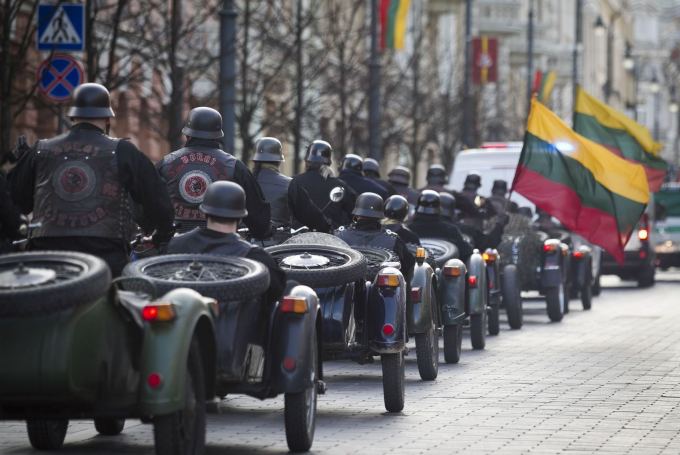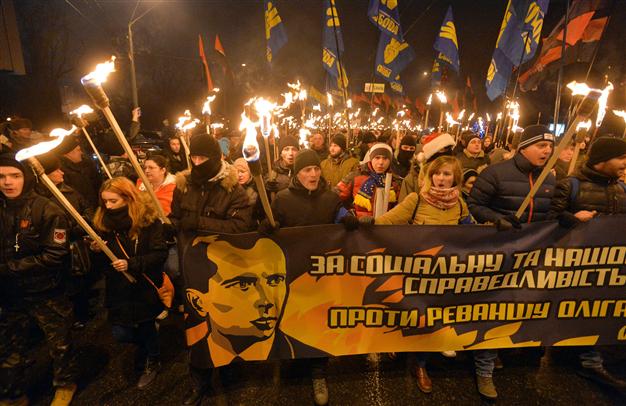
Views: 1731
The Holocaust and the tragic events that befell the Jewish community in the Second World War are fast fading from Canadians’ memories.
A recent survey by The Azrieli Foundation showed an alarming 52% of Canadian millennials cannot name even one concentration camp and 62% did not know six million Jews were killed in the Holocaust.
It is essential that Canadians help preserve Holocaust memory and speak out against those who engage in denial, distortion or obfuscation. This is a perilous time, particularly for Jewish communities in Europe.

The rise of extremist forces on the right is a critical challenge. Witness the recent targeting of mosques in New Zealand.
Last year, B’nai Brith Canada asked Prime Minister Justin Trudeau to speak openly while visiting Latvia, a NATO ally, to condemn all attempts to glorify Nazi sympathizers or collaborators, whether governments, military units, fascist organizations or individuals. We are still waiting for a response.
Parades and demonstrations in European cities today glorify the role of military units known to have supported or sympathized with the Nazis. This includes worrying signs in the three Baltic countries and in Ukraine. Too often, we hear that nothing must be done that impugns the national honour to counter the voices of those who object. Laws giving effect to this approach are pernicious and serve to unleash dark forces.
We must challenge those who distort historical records on governments, military units or organizations that fought with, supported or sympathized with the Nazis during World War II. This includes government leaders who acquiesce in, or fail to condemn, a process of Nazi glorification that amounts to Holocaust distortion. This cannot be tolerated.

Last summer, Ukraine renamed a major boulevard in honour of Stepan Bandera, leader of groups responsible for the slaughter of thousands of Jews and Poles during World War II. Lviv regional council declared 2019 “The Year of Bandera.”
In Lithuania, nationalist marches repeatedly use banners glorifying local Holocaust collaborators. A major university in Kaunas features a lecture hall and sculpture honouring the 1941 Nazi puppet Prime Minister Juozas Ambrazevicius-Brazaitis, who signed papers consigning Jews of his own city to a death camp.
In Latvia, parades continue that, in effect, glorify the Latvian Legion, including the 15th and 19th Waffen Grenadier Divisions of the SS. In fact, one annual march is taking place today. Where’s the condemnation?
The Council of Europe Commission Against Racism and Intolerance (ECRI) recommended in 2012 that Latvian authorities condemn attempts to commemorate persons who fought in the Waffen SS and collaborated with the Nazis. ECRI further recommended that authorities ban any gathering or march legitimizing Nazism.
Those who glorify the record of such groups cannot dismiss criticism as fake news. Nor can their actions be justified as the lesser of two evils. The complexity-of-history argument must not divert attention from what actually happened to the Jews of Europe at the hands of those who supported or sympathized with Nazi motivation.
To raise these concerns is not to challenge trans-Atlantic unity or to endorse disinformation efforts or mischief-making by some countries, including Russia.
The fact is that some organizations and their leaders, glorified for fighting the Soviet army, were also involved in atrocities against Jewish civilians or embraced ideologies that were anti-Semitic. There can be legitimate debate about the scale of complicity, but complicity there was.
This is why B’nai Brith Canada rejects any efforts to constrain historians and media from researching what happened and publicly explaining it objectively. Those who write about historical facts should not be condemned. They should be challenged, yes, but supported for the light they shed on the implications for contemporary societies.

Originally published on 2019-03-15
About the author: Michael Mostyn is Chief Executive Officer of B’nai Brith Canada.
Origins of images: Facebook, Twitter, Wikimedia, Wikipedia, Flickr, Google, Imageinjection & Pinterest.
Read our Disclaimer/Legal Statement!
Donate to Support Us
We would like to ask you to consider a small donation to help our team keep working. We accept no advertising and rely only on you, our readers, to keep us digging the truth on history, global politics and international relations.










